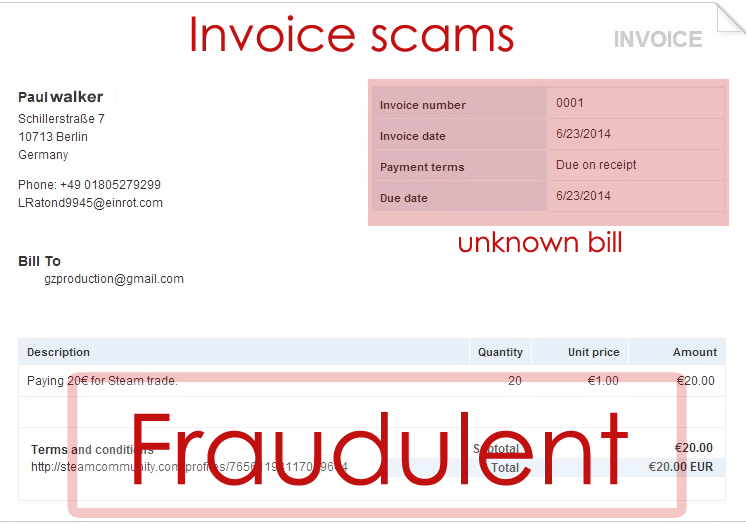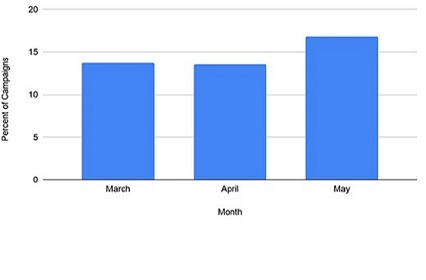Invoice Scams
Millions of people share their personal information such as name, address, email address, date of birth, social security number while transacting with others and also share other financial details such as online passwords, pins and security answers while performing banking transactions. Most of the people those who are actively performing financial transaction on the internet are unsure about the safety of their personal and financial data. Scamming activities have evolved to a great extent in the recent past and people those are communicating through the mails are put into constant threat by various cyber criminals. Many people suddenly receive a mail from the third party requesting them to share their personal and financial information and these people do not know whether these mails are from the scammers or from the legitimate departments. Though few people escalate these mails to cyber cell others are watching the activities as mute spectators. Already the cyber criminals have hacked several sites and hijacked the important information of various people. Life of the ordinary people those who are transacting through internet will transform into a hell when these activities continues vigorously. Latest scam which is doing the rounds is invoice payment and finance.
Invoice scams involve deceptive tactics where scammers attempt to trick individuals or businesses into paying fake invoices for goods or services. These scams often take various forms, including the creation of convincing fake invoices that appear legitimate, complete with false details and logos. Phishing emails are another common method, where fraudsters pose as legitimate entities, sending emails requesting payment for fictitious invoices. These emails may also contain malicious links or attachments. Business Email Compromise (BEC) is a sophisticated form of this scam, where cybercriminals gain unauthorized access to business email accounts, allowing them to send fraudulent invoices or redirect payments. Overpayment scams are also prevalent, with scammers overstating invoice amounts and convincing victims to pay the excess, which the fraudsters then pocket. To avoid falling victim, individuals and businesses should verify the authenticity of invoices, use two-factor authentication, educate employees on scams, establish secure payment protocols, and stay informed about evolving cybersecurity threats.
- Never reply to any mails that are related to renewals of subscription or invoices stating that renewal date is fast approaching since these mails are from scammers.
- Do not interact with the scammers through mails by reciprocating or speaking on the given number since he will misdirect the innocent people quickly.
- Inform these types of activities to cyber cell or department dealing with scams.
- Never share the personal and financial information to the third parties and strangers
- Reduce the financial transaction through online platforms.
Scams related to business invoice, emails and other types of scams will only increase when the authorities are not taking strict actions against the scammers.





